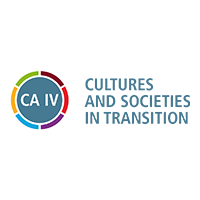Performing Authenticities and Nation Building: Case Study of the National Festival of Arts and Cultures in Nigeria
Hajara Amoni Njidda (Nigeria)
Cologne, 22.11.2013
This lecture was about the National festival of arts and culture in Nigeria which was initiated by one of the military leaders of the country in 1970 with the main aim of using traditional music and dance for the return of unity and mutual trust among the citizens of the country after the civil war. The festival has continued to be sustained, refurbished and promoted by subsequent leaders, thereby transcending its initial unity function, especially by the introduction of the thematic approach to the performance of the festival. It has now turned out to be an avenue for talent hunt and display of indigenous skills and harnessing them for contemporary usage and tourism, thereby contributing to nation building. The questions among others are: Who the organizers of the festival are, who are the participants, what are the events, what has sustained this festival thus far and how? Who decides what should be considered authentic at the festival and why? Are they events invented just for the festival? What efforts at nation building are evident in the performance of the festival?
The thrust of this paper was to examine the festival from the perspectives of performing authenticity, invention of tradition and nation building. The festival itself is continually shaped and reshaped by prevailing political, social and economic conditions in the country; the study will look at the adaptation of these three concepts in the face of the changes brought about by these conditions. The concept of authenticity used in this project deals with what participants consider genuinely or truly indigenous to them, which they are always delighted to exhibit or perform at the festival, but in the process of adapting to the festival standards, traditional performances tend to lose some aspects while sometimes picking up others, thus leading to the process of ‘invention’ and reinventions of ‘traditions’ (Hobsbawm and Terence, 1983, Clifford, 1988). Nation building on the other hand has become central to the performance of the festival as there are hardly any of the annual themes that do not portray issues of nationalism and nation building. Job creation, economic empowerment, self employment, unity and dialogue among others, have thus become regular words and phrases in the themes of the festival.
This project has been pursued using qualitative data from various sources among which are unstructured interview, focus group discussions, participant observation and related literature.
Hajara Amoni Njidda has worked on various research projects which include among others, documentation of rock painting sites in Nigeria, documentation of various traditional festivals in North Eastern Nigeria, socio-cultural survey of enclave dwellers of the Gashaka-Gumti National park in Nigeria, traditional burials in Marghi land, the practice of ‘Animal double’ among the Marghi and a lot more. She also has worked as a museum curator and researcher at the Borno State council for arts and culture before moving to the National Council for Arts and Culture where she is now a deputy director in the research and documentation department
